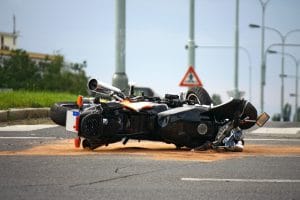 Everyone loves the luxury that motorcycles offer—the wind in your hair, the ability to slip through heavy traffic, and that rush of adrenaline as your speedometer ticks higher every second. Riding your motorcycle ultimately makes you feel like you’re invincible. However, that’s not always the case.
Everyone loves the luxury that motorcycles offer—the wind in your hair, the ability to slip through heavy traffic, and that rush of adrenaline as your speedometer ticks higher every second. Riding your motorcycle ultimately makes you feel like you’re invincible. However, that’s not always the case.
In 2001, there were 3,197 incidents of motorcycle accident-related deaths. By 2016, it ballooned up to 5,029 recorded deaths for the whole year—that’s an average of 13 lives lost per day. While some have been lucky by being spared from that sudden end to their lives, they still have fallen as victims of motorcycle-related injuries that can leave permanent effects. Here are some injuries that happen during motorcycle accidents and a few tips on how you can avoid them.
1.) Skin Abrasion
When you become involved in a motorcycle accident, the part of your body that will be exposed by the collision is your skin. When your skin hits the hard and rough surface of the road, it begins to peel away. This is called a “road rash” and is categorized as follows:
- First-degree road rash – when the surface of your skin only obtains shallow scratches, a bit of inflammation and irritation.
- Second-degree road rash – when your epidermis is broken but the dermis is still intact.
- Third-degree road rash – when your muscle and fats are exposed and therefore, need immediate medical attention before infection seeps into the wound.
How to avoid skin abrasion:
No matter what the weather is, it is advised by the professionals that a motorcycle driver should wear:
- Leather jacket – the leather jacket acts like a second layer of skin that will protect you from a road rash. This durable material will be able to withstand enough friction to protect your skin from obtaining skin abrasion.
- Gloves – gloves are meant to provide your palms and fingers with the protection they need. Some special gloves include rubber soles on the hands for added protection and grip.
2.) Paralysis
The spinal cord is the most important foundation of our body that connects our brain with other parts of it such as the torso and limbs. A great trauma inflicted on the spinal cord can damage nerves that serve as a communication system for the brain to command movement to other parts of your body. When you drive a motorcycle, you leave your spinal cord vulnerable to any force, which is why paralysis is one of the scariest consequences of an accident.
How to avoid:
Do not drive when you’re drunk for it will be more difficult for you to comprehend and respond to oncoming danger on your way. It is also best that you do not speed because your spinal cord is your body’s shock absorber—the faster you go, the greater the force that it will have to deal with.
3.) Head Trauma
 Whenever you are driving on a motorcycle, the head must be protected at all times because a head injury can ultimately damage the rest of your body, especially when the soft tissue of your brain is pressed against your skull. This will result in a rupture of blood vessels and lead to a plethora of other complications that are most likely fatal.
Whenever you are driving on a motorcycle, the head must be protected at all times because a head injury can ultimately damage the rest of your body, especially when the soft tissue of your brain is pressed against your skull. This will result in a rupture of blood vessels and lead to a plethora of other complications that are most likely fatal.
How to avoid:
A lot of people forget that wearing a helmet helps to keep out bugs and prevents specks of dust from getting in your eyes, nose, mouth, and ears. However, wearing a helmet is also advised to lessen the impact and damage that you are most-likely to obtain from an accident because it absorbs the initial shock of the impact.
Sometimes, these accidents often have an external party that should be held responsible for such a life-threatening circumstance and a well-experienced lawyer can help you obtain the justice that you deserve. You can contact a personal injury attorney to advise you on the legal proceedings for crucial matters such as this.
Recent Posts
- Castor Oil For Better Hair Growth: Is It Myth Or Fact?
- Exploring the Differences Between Sermorelin, Ipamorelin, Ibutamoren, GHRP2, and GHRP6: Understanding Their Role in Human Growth Hormone Regulation
- Unraveling the Mystery: Understanding the Causes and Prognosis of Ventricular Tachycardia Without Apparent Heart Disease
- Understanding Grandparents’ Rights in Oklahoma: Navigating Visitation and Legal Protections
- 10 Reasons to Consider Hypnotherapy for Your Health

